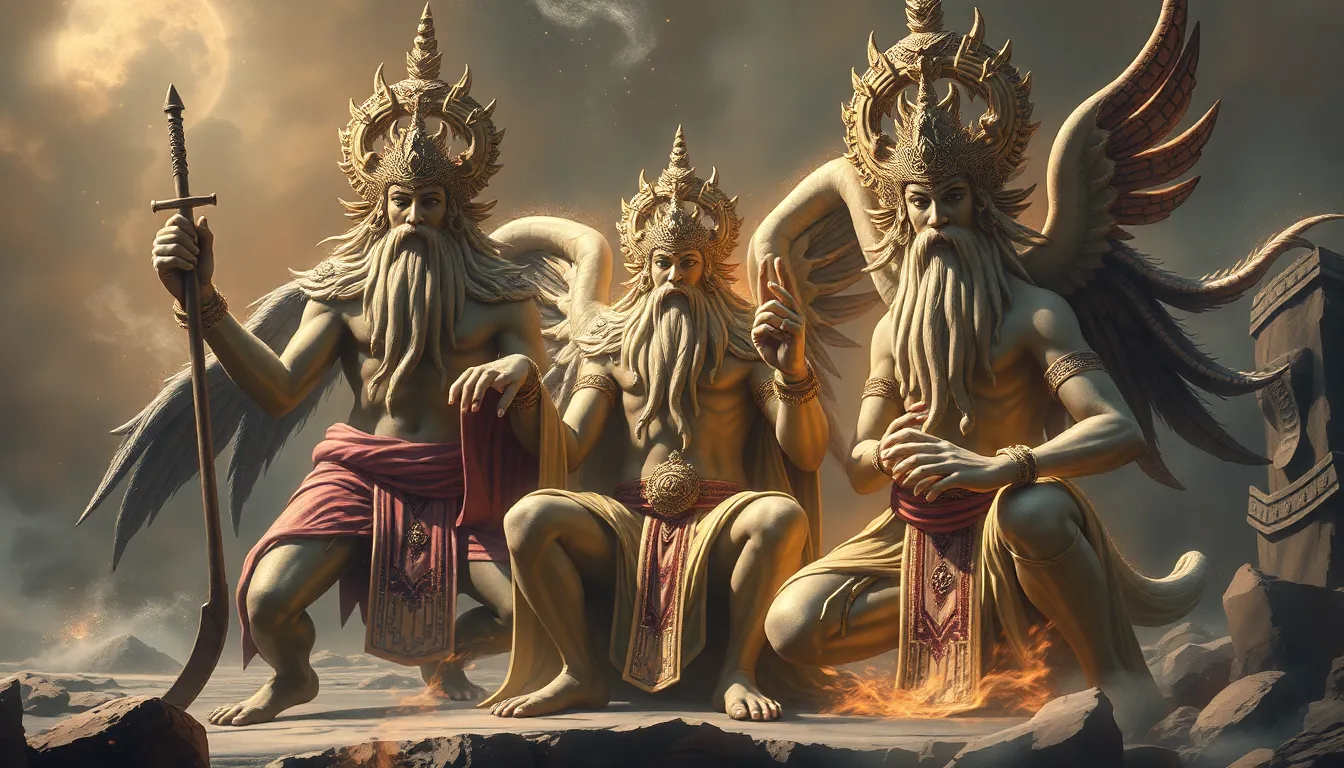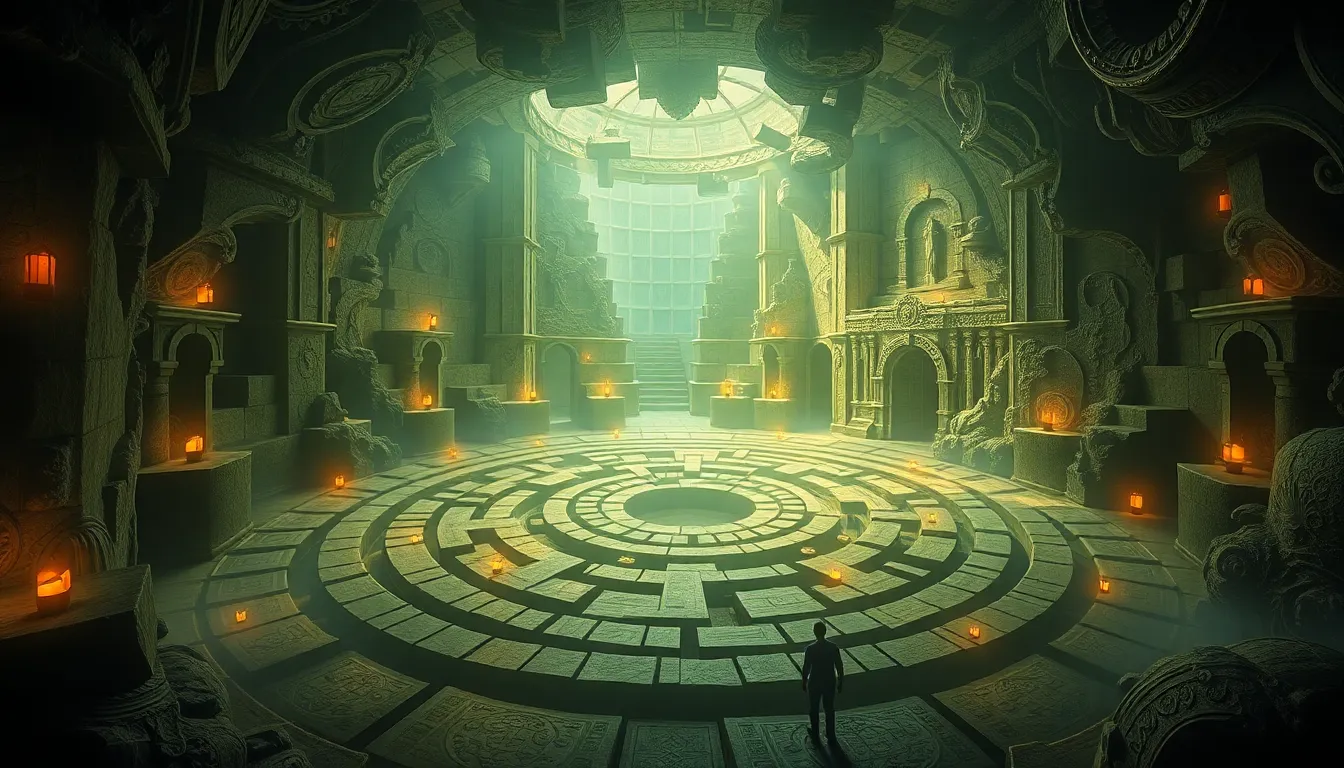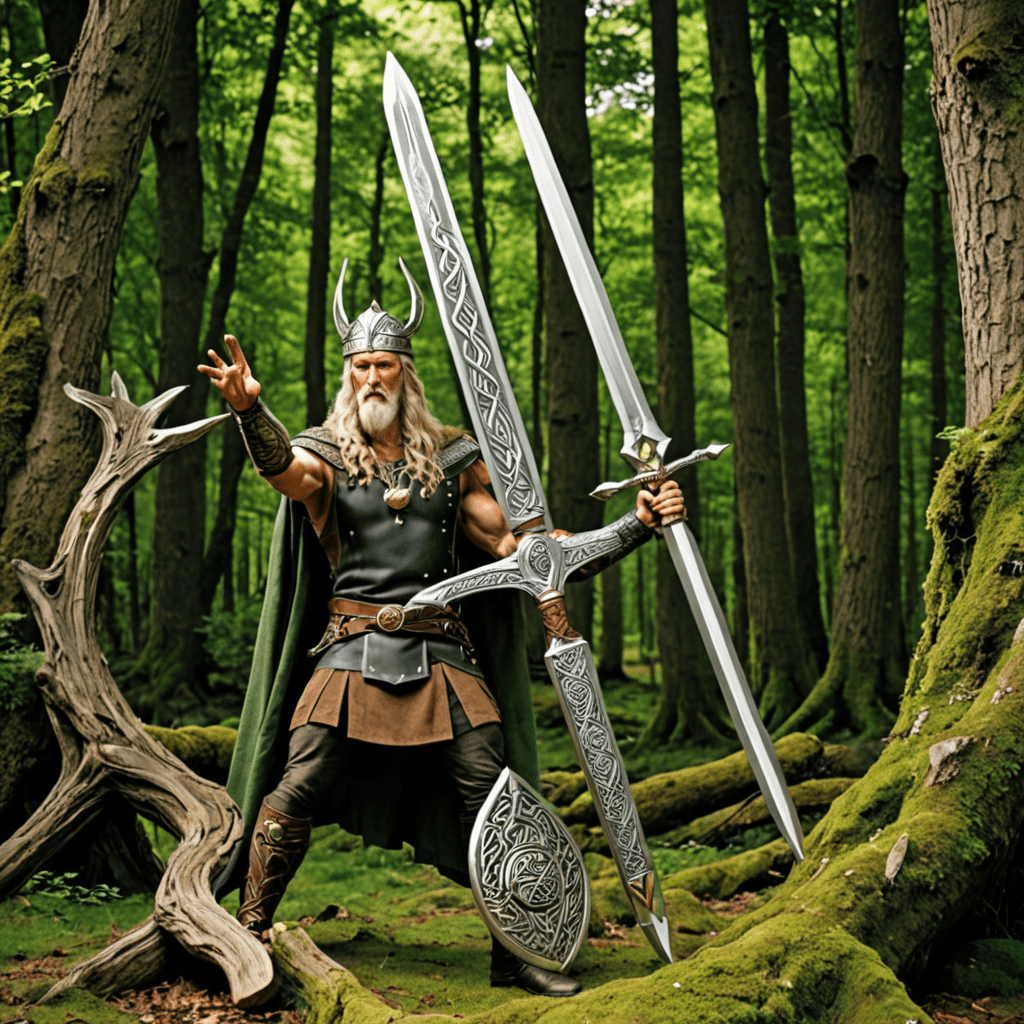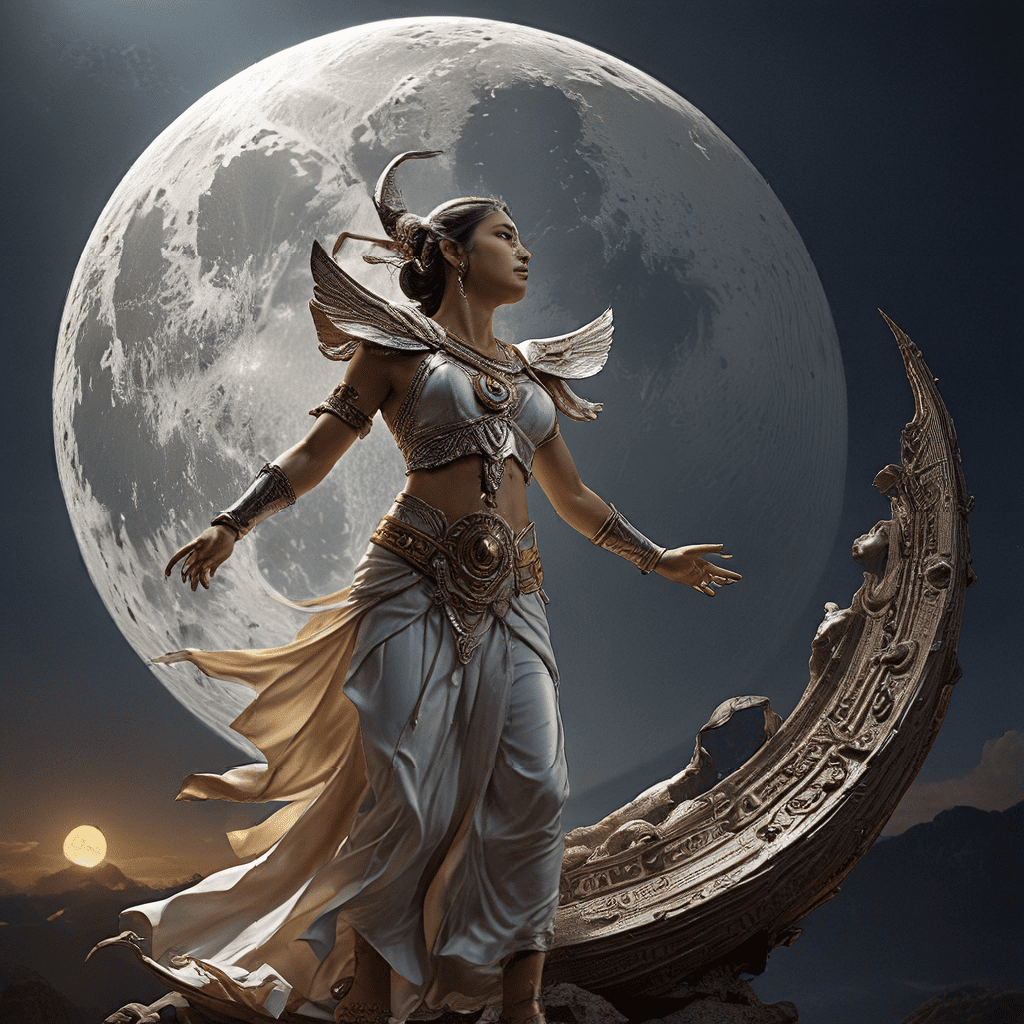The Most Powerful Ancient Deities and Their Legendary Stories
Introduction
Throughout history, ancient deities have played a pivotal role in shaping the beliefs, values, and customs of various civilizations. These powerful figures often personified natural forces, human emotions, and ethical principles, serving as a bridge between the mortal and the divine. The myths surrounding these gods and goddesses provide a rich tapestry of storytelling that helps us understand not only the cultures that revered them but also the universal themes of human experience.
The Pantheon of Power: Defining Ancient Deities
Ancient deities share several characteristics that define their power and significance:
- Authority: Many deities are associated with supreme power, governing over aspects of the universe, nature, or human affairs.
- Mythological Narratives: The stories associated with these deities often highlight their heroic feats, moral dilemmas, and interactions with humans.
- Cultural Symbolism: Deities frequently symbolize the values and beliefs of the cultures that worshiped them.
Moreover, the distinction between gods and goddesses varies across cultures. In some societies, male deities dominate, while in others, female deities play a crucial role, reflecting the societal norms and gender dynamics of the time.
Zeus: King of the Greek Gods
Zeus, the chief deity of ancient Greece, is a central figure in Greek mythology. He is known for his thunderbolt, symbolizing authority and power.
Origins and Family Lineage of Zeus: Born to the Titans Cronus and Rhea, Zeus was the youngest of his siblings. To escape being swallowed by Cronus, he was hidden away and later led a revolt against his father, freeing his siblings.
Legendary Tales: The Titanomachy, a ten-year war between the Titans and the Olympians, culminated in Zeus establishing himself as the ruler of Mount Olympus. This epic battle not only demonstrated his power but also solidified the hierarchy of the gods.
Symbolism and Cultural Impact: Zeus embodied justice, law, and order, influencing both politics and religion in ancient Greece. Temples dedicated to him, such as the Temple of Zeus at Olympia, served as cultural centers.
Ra: The Sun God of Ancient Egypt
Ra held a prominent position in ancient Egyptian mythology as the sun god, symbolizing light, warmth, and growth.
The Significance of the Sun: The sun was crucial for agriculture and life; thus, Ra was revered as a creator god who brought life to the world.
Ra’s Journey Through the Underworld: Every night, Ra embarked on a perilous journey through the underworld, battling the serpent Apophis. This journey symbolized the cycle of death and rebirth, reflecting the eternal nature of life.
The Worship of Ra: Temples dedicated to Ra were built across Egypt, and he was often depicted in art and iconography, highlighting his significance in daily life and governance.
Indra: The King of the Gods in Hindu Mythology
Indra, the king of the Devas in Hindu mythology, is celebrated as the god of rain, thunderstorms, and war.
Indra’s Role: As the god responsible for bringing rain, Indra was essential for agriculture and prosperity, making him a vital figure in Vedic culture.
Key Legends: One of the most famous tales involves his battle against the serpent Vritra, who hoarded the waters. Indra’s victory not only liberated the rivers but also secured his status as a hero.
Indra’s Complexity: While Indra embodies power and strength, he also showcases vulnerability and moral dilemmas, making him a multi-faceted deity.
Odin: The Allfather of Norse Mythology
Odin, revered as the Allfather in Norse mythology, is a complex deity associated with wisdom, war, and death.
Odin’s Quest for Wisdom: Odin sacrificed his eye at Mimir’s well in pursuit of knowledge, emphasizing the value of wisdom over physical power.
The Significance of Runes: Odin is credited with discovering runes, which were used for divination and magic, highlighting his role as a god of knowledge.
The Impact on Viking Culture: Odin’s influence is evident in Viking beliefs, where warriors sought his favor in battle, and his stories shaped their understanding of fate and destiny.
Quetzalcoatl: The Feathered Serpent of Mesoamerica
Quetzalcoatl, often depicted as a feathered serpent, is a significant deity in Mesoamerican cultures, representing duality and balance.
The Duality of Quetzalcoatl: As a god of wind and learning, Quetzalcoatl embodies the connection between the heavens and the earth, emphasizing the importance of knowledge and spirituality.
Myths Surrounding His Creation: Various legends narrate Quetzalcoatl’s role in creating humanity and the world, portraying him as a benevolent figure who sought to bring enlightenment.
The Lasting Legacy: Quetzalcoatl’s influence persists in modern culture, where he is often referenced in literature and art, symbolizing the quest for knowledge and harmony.
Hera: The Powerful Goddess of Marriage and Family
Hera, the wife of Zeus, holds a prominent position in Greek mythology as the goddess of marriage and family.
Hera’s Status: As the queen of the gods, Hera wielded significant influence, often associated with the sanctity of marriage and the protection of women.
Jealousy and Vengeance: Hera’s stories frequently illustrate her jealousy towards Zeus’s lovers and offspring, showcasing her complex personality and the dynamics of divine relationships.
Protector of Women: Despite her vengeful aspects, Hera is revered as a protector of women, emphasizing the importance of marriage and family in ancient Greek society.
Anubis: The Guardian of the Underworld
Anubis, the jackal-headed god of the dead, played a crucial role in ancient Egyptian funerary practices and beliefs about the afterlife.
Unique Role in Funerary Practices: Anubis was responsible for mummification and guiding souls in the afterlife, underscoring the significance of death in Egyptian culture.
Myths of Judgment: The weighing of the heart ceremony, where Anubis weighed the deceased’s heart against a feather, symbolized the moral evaluation of one’s life, influencing beliefs about justice and morality.
The Evolution of Worship: Anubis’s worship evolved throughout Egyptian history, reflecting changes in beliefs about death and the afterlife.
Conclusion
The stories of ancient deities continue to resonate in modern storytelling and culture, providing timeless narratives that explore themes of power, morality, and human experience. These legends not only reflect the values of the civilizations that created them but also offer insight into the universal questions of existence, justice, and the nature of the divine. By understanding these powerful figures, we gain a deeper appreciation for the myths that shaped human civilization and continue to inspire creativity and thought in contemporary society.



